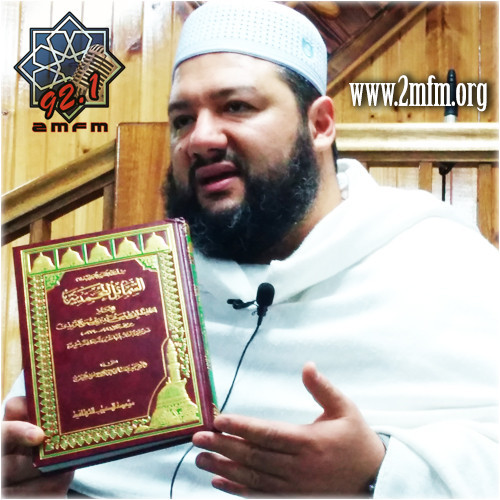Determining the beginning of Ramadan
Written by 2MFM on 25 June 2014

Fasting the month of Ramadan is a great worship. The reward of every good deed is multiplied by ten up to seven-hundred times, except that of the Fasting; it is usually done in sincerity and will be multiplied by as many times as Allah wills.
Fasting Ramadan is among the best acts of obedience, among the greatest deeds, and one of the most important matters of Islam. This is ascertained in the hadith reported by al-Bukhariyy and Muslim which indicates that Islam is based on five important matters; the Prophet counted fasting the month of Ramadan among them.
It was narrated that the great companion Salman al-Farisiyy said: In his speech on the last day of Sha^ban, the Messenger of Allah said: “ O people, a great and blessed month is about to cast upon you. It is a month holding a great night within. The reward one receives for spending this night in acts of worship is so great. A person may not receive a similar reward in spending one thousand months in acts of worship (which do not have the night of al-Qadr in them). Allah ordained upon you the obligation of fasting the days of Ramadan and kept it optional for His slaves to spend its nights in acts of obedience. It is the month of patience and the reward of patience is Paradise. It is also the month of sympathy and compassion. Whoever provides food to a fasting person to break the fast will be rewarded greatly; His sins will be forgiven and by the Will of Allah he will be protected from Hellfire and rewarded greatly. Upon hearing this, some of the companions said: O Messenger of Allah, not every one of us is able to provide food to the fasting person to break the fast. The Prophet replied: Allah grants this great reward to the one who provides the fasting person a date or a sip of water or a sip of milk to break the fast. The starting days of Ramadan are filled with special mercies, its middle days unfold with forgiveness and its last days end with protection from Hellfire. The one who provides the fasting person with a sip of water to break the fast, Allah grants him the virtue of drinking from my basin on the Day of Judgment not to feel any thirst ever again”.
The scholars of the four schools of Islamic Law agreed that the basis for determining the beginning of Ramadan is as follows: The crescent is visually observed after the sunset of the twenty-ninth (29th) day of Sha^ban. If the crescent is sighted, then the following day will be the first day of Ramadan. However, if the crescent is not sighted, then the next day will be the thirtieth (30th) of Sha^ban and the day after will be the beginning of Ramadan.
Muslims throughout the countries implemented this practice and the highly knowledgeable scholars ruled accordingly. Moreover, they stated that the reliance is on this rule and no attention is given to the sayings of mathematicians and astronomers, nor are their sayings relied upon in determining the beginning and ending of fasting.
Al-Bukhariyy, Muslim, and others narrated from the route of ^Abdullah Ibn ^Umar, may Allah raise his rank, that the Prophet, sallallahu ^alayhi wa sallam, said:
الشهر تسعٌ وعشرون ليلة فلا تصوموا حتى
ترَوُه فإن غُمَّ عليكم فأكملوا العدةَ ثلاثين
which means: <<The lunar month is twenty-nine (29) nights so do not fast until you sight the crescent. However, if it was cloudy then complete the count to thirty (30) days. >> Imam Ahmad, Imam Muslim, Abu Dawud and An-Nasa’iyy all narrated that the Prophet, sallallahu ^alayhi wa sallam, said what means: We do not rely on writings or calculations to determine the beginning or the end of the month. The month is either twenty- nine or thirty (29 or 30).
The scholars from the four madhahibs (schools of thought) all agreed that the calculations of the astronomer have no significance thus they do not determine the obligation of fasting and it is a sin to rely on them for that purpose. Finally, blessed are those who abide by the Muslim Jama^ah, their masses of scholars, and the sayings of the Prophet, sallallahu ^alayhi wa sallam. On the Day of Judgment regret shall be to those who follow a way other than that of the believers and stray away from the believers’ methodology.






